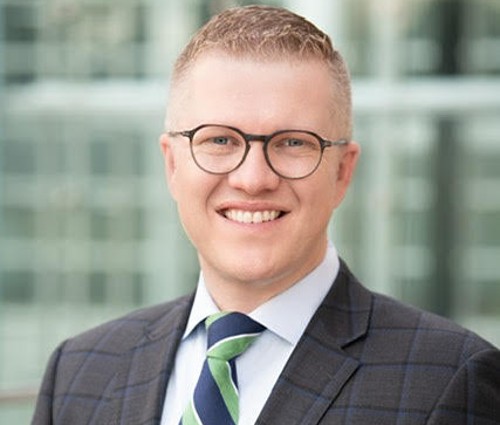The Iowa health system and ACO will move from a project mindset to an organizational mindset through a partnership with Signify Health.
MercyOne wants to evolve its accountable care organization (ACO) from good to great—a tough task in rural America, where value-based care is a lofty concept.
The health system has announced a partnership with technology vendor Signify Health, beginning next year, to leverage advanced analytics technology to strengthen the ACO into a population health services organization (PHSO). The strategy is designed to assist the rural network in its shift to risk-based payment arrangements and better manage total cost of care for Iowa Medicare patients.
Leading the charge is Derek Novak, who joined MercyOne's ACO a decade ago and became president of the MercyOne PHSO in February 2019. He says MercyOne selected Signify Health as a partner after realigning its care management model and the organization powering it.
"We took a long look at our overall care management approach," he says. "Rather than just layer on more technology, what we did as an organization is look at it as an opportunity to redesign, really our care management and operation infrastructure."
Technology, nevertheless, plays a role.
"We have a lot of different, disparate data systems across our very broad network of providers," Novak says. "Technology can serve as a vital connection point to those organizations or those systems, being intentional about where it does support those processes for care management and engagement of our members."

Derek Novak, president of MercyOne's population health services organization. Photo courtesy MercyOne.
Numerous factors go into running the PHSO successfully, Novak says.
"While we've been doing accountable care organization work, or value-based work, since 2012, it certainly looks a lot different today than it did then," he says.
"We were very oriented in the beginning of how we perform on our particular contract, on things like improved quality or improved costs. Where we've changed our mindset over the years is, how do we build on that knowledge and that experience of what it took to be successful in those programs, to really transform what does it take to establish competency in performing better no matter what the program is."
For example, the ACO went through various accreditations for its care management plans.
"While we were very oriented on which levers to pull under programs, we now have an accredited program where we apply that methodology across any value-based contract that we bring into our population health services, really standing up an organizational approach to population health," Novak says.
To date, MercyOne has about 300,000 patients in its value-based care program, spanning urban and rural geographics.
As the organization improves its outcomes year over year, he says, both in terms of quality and finances, a shift to operating the ACO as an organization, rather than a program, has allowed the MercyOne PHSO to see more of an upward trajectory.
Another success factor is Novak's background, which doesn't read like a run-of-the-mill healthcare executive bio. Prior to entering the healthcare industry, he worked for industrial manufacturing conglomerate Textron, where he earned a Lean Six Sigma Black Belt certification, useful for keeping tabs on a substantial supply chain.
Five years into his tenure at MercyOne, Novak started bringing those Lean Six Sigma methodologies to bear on the health system, implementing the improvements ushered in by the Affordable Care Act to form its first ACO and move into value-based care.
By 2019, when Novak was named president of the ACO, he headed up the organization's community health and wellbeing initiatives, as well as its business solutions division, determining how MercyOne collaborates and works with employers looking for value-based care arrangements.
A key aspect of the Signify partnership will be extending the same level of ACO support throughout MercyOne's network of rural critical access hospitals and rural health clinics participating in the PHSO program.
MercyOne took time during the pandemic to examine "how do we provide the same level of support to our rural network throughout the MercyOne PHSO that we were also providing to our urban counterparts," Novak says. "Ultimately, that led us to exploring opportunities to bring in a partner like Signify Health."
Novak says MercyOne is fortunate because it has already built out much of the infrastructure that will aggregate population health data from these rural partners--data that will now populate the dashboards that Signify Health will present to clinicians.
The need to realize a short-term return on investment from this new alliance is secondary to the overall PHSO mission.
“Rather than just layer on more technology, what we did as an organization is really look at it as an opportunity to redesign our care management and operation infrastructure.”
— Derek Novak, president, MercyOne PHSO.
Scott Mace is a contributing writer for HealthLeaders.
KEY TAKEAWAYS
MercyOne PHSO President Derek Novak brings Lean Six Sigma Black Belt capabilities into his task of making the MercyOne ACO better.
The health system is using technology to, among other things, connect disparate systems to re-engage patients who avoided care during the pandemic.
The shift to value-based care is especially important—and challenging—in a rural health system, where geography and a scarcity of resources can be a barrier.
